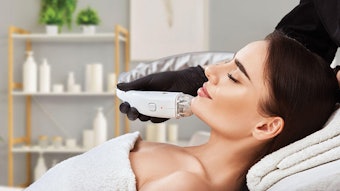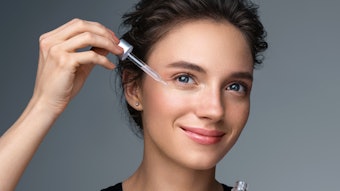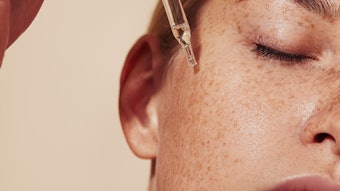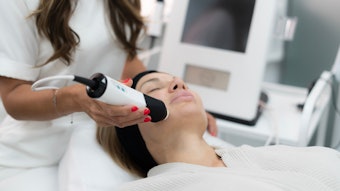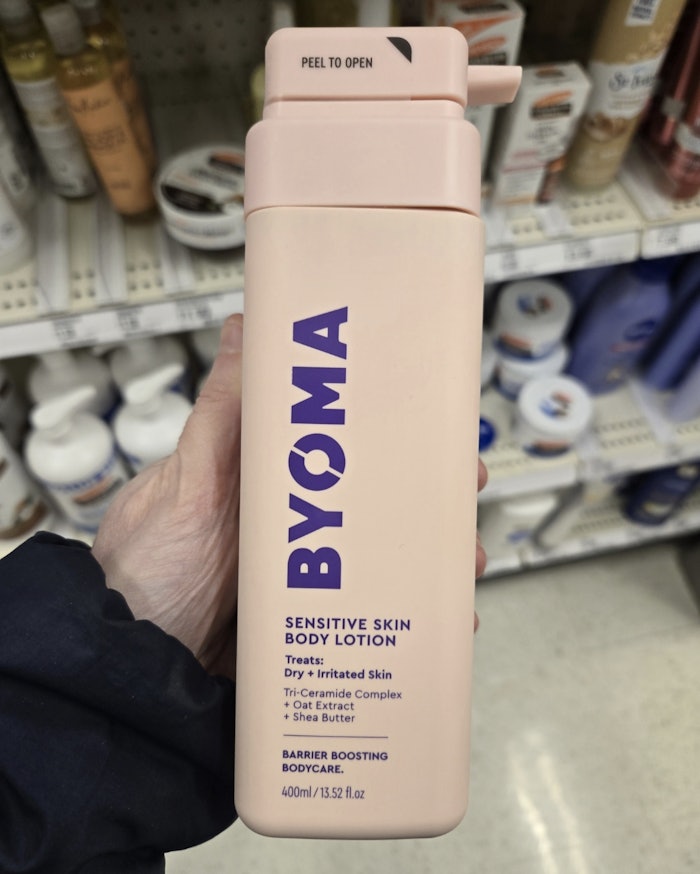
Globally, the market for ceramide skin care was valued at US $534.95 million in 2024 and is expected to reach $859.09 million by 2032 (6.1% CAGR), per Data Bridge Market Research. The firm attributes this growth to increasing consumer awareness of skin health, demand for anti-aging and moisturizing products, and the popularity of premium and dermatologically tested skin care. In this week's product spotlight, the Byoma Sensitive Skin Body Lotion provides an example.
The product is clinically proven to:
This article is only available to registered users.
Log In to View the Full Article
Globally, the market for ceramide skin care was valued at US $534.95 million in 2024 and is expected to reach $859.09 million by 2032 (6.1% CAGR), per Data Bridge Market Research. The firm attributes this growth to increasing consumer awareness of skin health, demand for anti-aging and moisturizing products, and the popularity of premium and dermatologically tested skin care. In this week's product spotlight, the Byoma Sensitive Skin Body Lotion provides an example.
Byoma Sensitive Skin Body Lotion
Designed to hydrate and heal, Byoma's Sensitive Skin Body Lotion is said to gently and deeply soothe very dry skin. The buttery soft, fragrance-free formula is reportedly calming, with a texture that melts into skin to provide deep, multi-layer moisturization.
The product helps to relieve redness, irritation and itch, per the company. Enriched with Byoma's Tri-Ceramide Complex — three essential stratum corneum lipids, i.e., ceramides, cholesterol and fatty acids — the lotion leaves skin smooth, supple and relieved while improving barrier function.
The product is clinically proven to:
- improve skin hydration,
- improve the appearance of dry skin,
- improve the skin barrier,
- provide 24-hr moisturization and
- protect and maintain the skin barrier.
In addition to the barrier-boosting complex, it features oat extract to soothe, soften and smooth skin; and shea butter, an emollient that soothes, nourishes and hydrates. Dermatologist tested and approved, the product is also alcohol- and fragrance-free, vegan and cruelty free.
Ingredients: Byoma Sensitive Skin Body Lotion
Water (Aqua), Ethylhexyl Palmitate, Ricinus Communis (Castor) Seed Oil, Glycerin, Glyceryl Stearate SE, Cetyl Alcohol, Vitis Vinifera (Grape) Seed Oil, Butyrospermum Parkii (Shea) Butter, Cocos Nucifera (Coconut) Oil, Ethylhexylglycerin, Avena Sativa (Oat) Kernel Flour, Acrylates/C10-30 Alkyl Acrylate Crosspolymer, Squalane, Benzyl Alcohol, Helianthus Annuus (Sunflower) Seed Oil, Ceramide NP, Caprylic/Capric Triglyceride, Cholesterol, Calendula Officinalis Flower, Hydrogenated Lecithin, Phytosphingosine, Tocopherol, Oleic Acid, Stearic Acid, Sodium Hydroxide, Caprylyl Glycol, Lactic Acid, Caprylhydroxamic Acid.
Ingredients are shown as listed on the company website as of Oct. 31, 2025.
User Feedback: Byoma Sensitive Skin Body Lotion
Following are example user reviews (edited for style), selected for their anecdotal insights on product form and function.
- This goes on lovely without being too thick.
- My shins are always extra dry and scaly and this body lotion fixed that within a couple of days.
- Byoma body lotion is good for even very sensitive skin prone to eczema and allergic reactions.
- The only problem is the packaging — it’s a good-looking design but the pump cannot get to the last sixth or eighth of the lotion.
- Very hydrating
- It makes my skin feel great and doesn't irritate it at all.
Ceramides for Skin Health
As previously reported, researchers at Kao Corp. discovered that the ceramide profile of atopic skin can be shifted toward that of healthy skin through the daily application of a lotion containing synthetic pseudo ceramide.
A panel of 38 patients presenting with atopic dermatitis treated their skin twice daily with a test lotion for four weeks. Synthetic pseudo-ceramide and endogenous ceramides in the stratum corneum were examined using normal phase liquid chromatography-electrospray ionized (NPLC-ESI) mass spectrometry. Stratum corneum water content was determined by skin conductance measurements.
The endogenous stratum corneum ceramide profile showed a shift after four weeks of daily treatment with the test lotion. In particular, ceramide NH and NP levels were increased, and ceramide NS and AS levels were decreased.
Furthermore, a lengthening of the ceramide NS carbon chain also was also observed. These results indicated the endogenous ceramide profile characteristic of atopic skin shifted toward that observed in healthy skin.


